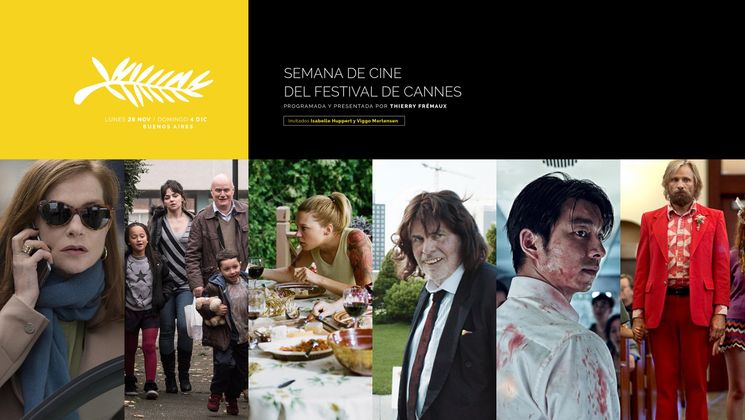
A talk with Marie-Josée Croze, member of the Cinéfondation and Short Films Jury

Discovered in Cannes in 2003 with Les Invasions Barbares (The Barbarian Invasions) by Denys Arcand, which won her Best Actress award, Marie-Josée Croze was back on the Croisette this year as a member of the Cinéfondation and Short Films jury, presided over by Naomi Kawasé. Looking back on her experience and impressions as a juror.
You are a member of the Cinéfondation and Short Films Jury, presided over by Naomi Kawasé. How did you approach this role?
I didn't prepare for this role. I mainly trusted my instincts as a spectator and I distanced myself from any stereotypes related to film genres. When I am confronted with a film, I try to find out if what I am watching really engages my attention. After that, it is a matter of working with the other members of the Jury. Each of us has to be able to express our tastes and opinions. Then, any one juror can bring things to light that may have escaped the others.
This is not the first time that you have been given this role as a juror at a festival. What did you gain from this experience in Cannes?
I was very happy to come because it's the first time that I have been on a short film jury. It is a big responsibility, because we find ourselves confronted with the directors of tomorrow and we do not want to discourage them. It’s a pleasure to know that the prizes we award them might give them the enthusiasm they need to continue. And then, this Jury in Cannes was very harmonious. We shared a common sensitivity for the films, and we were often unanimous in our judgements.
You won the award for Best Actress in Cannes for The Barbarian Invasions in 2003. What is your recollection of that?
I never would have had the career that I have now if I had not won that award. I am very aware that there was a "before Cannes" and an "after Cannes".
You act in films in both French and English. How do you approach these different productions?
I don't think that it is a matter of countries. I have never felt any differences between the nationalities. It all depends on the film genre and the budget. For example, films by an auteur demand a great investment. We go out of our comfort zone, you have to be grounded, and it is a constant effort to discover, unlike the bigger productions in which we sometimes have to wait for someone to direct us. But it is not as if one is easier than the other.
What type of project would you like to have offered to you? What is your dream role?
I have come to realise that the roles themselves are not very important for me. It is above all an encounter. It is wonderful to be able to work with directors who give you the feeling that you are respected and understood. On each film, I hope to meet people who are intelligent, sensitive, with whom I am going to get along and be on the same wavelength. The main thing is to find a common language, someone who trusts you and whom you can trust.
Which films really touch you?
I really love realism in cinema. But also directors like Kubrick, Bergman, Truffaut… However, I think you have to be open to everything. And this experience as a juror calls for openness as well.
You have to watch the films with your heart.
You have acted in short films yourself. What makes this a good exercise?
Short films are a way of getting started in film, playing roles that speak to us and learning. With a short film you never know how it will end up; it's a risk you take and a great experience.
Could you make a short film?
It’s tempting. I would do it if I couldn't prevent myself, if I had an idea that I couldn't stop thinking about. Maybe one of these days, I will take the plunge.
A word on this Cinéfondation and Short Films selection?
We saw some very promising work. I watched some very personal films that were powerful and moving. The Selection included many realist films and I empathised with all the stories that were told to me. This has really made me want to follow the directors whom we discovered in this edition.

